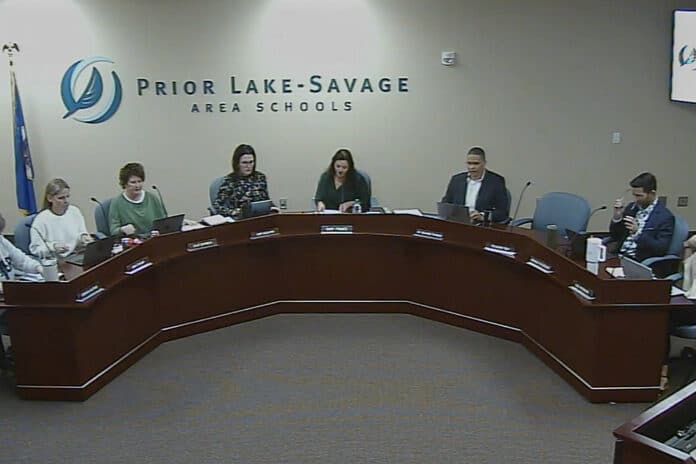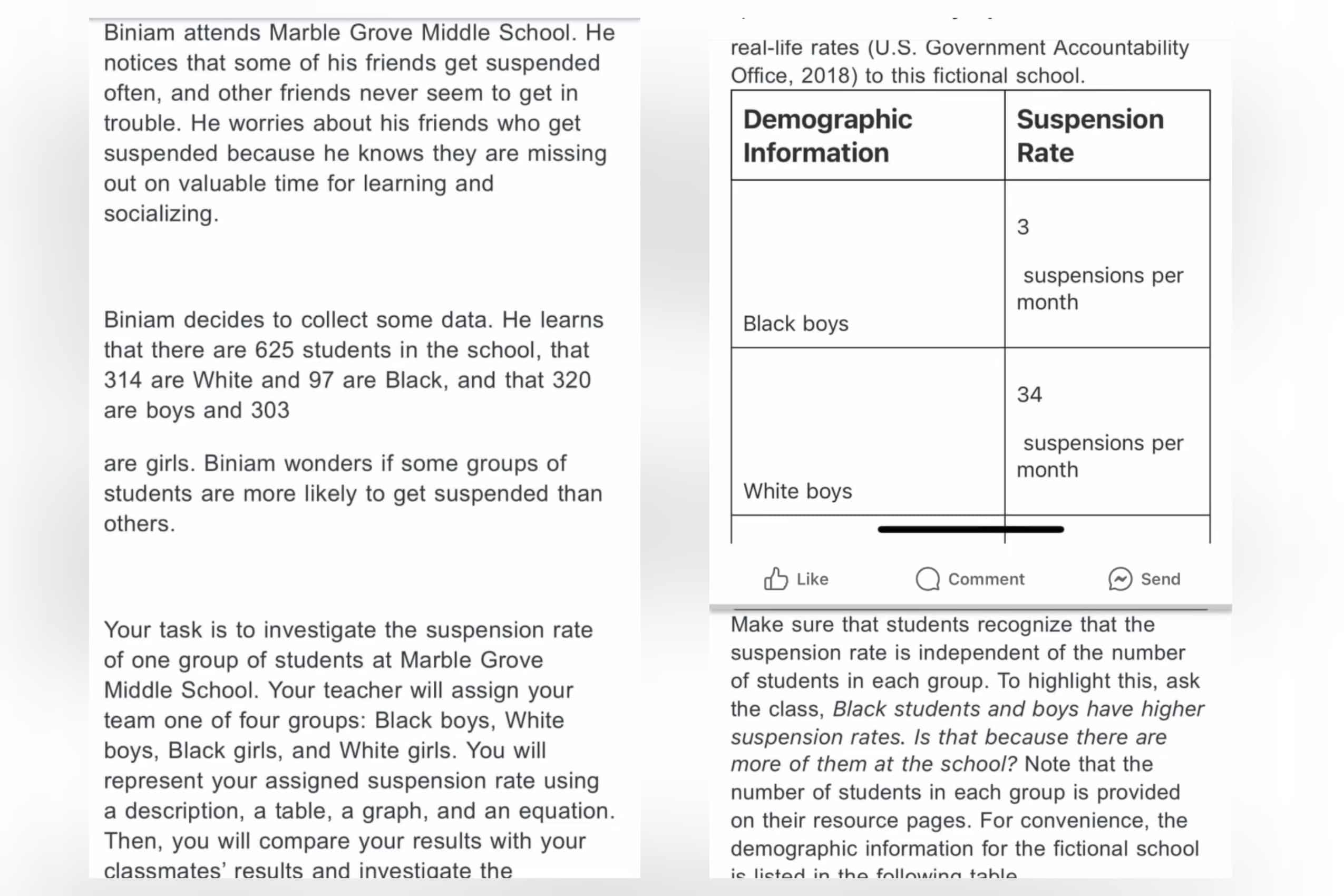
With less than half of Minnesota students proficient in math, a new curriculum rolled out at two Prior Lake middle schools has parents fuming, saying the program focuses more on social justice than academic achievement.
Hidden Oaks and Twin Oaks Middle Schools in the Prior Lake-Savage Area Schools (PLSAS) district have implemented the Inspiring Connections curriculum—an updated version of the College Preparatory Mathematics (CPM) program. But part of what sets this version apart is the inclusion of politically-charged topics such as racial disparities in student suspension rates, a shift that critics say detracts from fundamental math skills.
Parent frustrations
Charles Johnson, a PLSAS middle school parent and school board candidate, was frustrated after watching his daughter’s math scores, which had steadily improved each year, suddenly drop when she entered the CPM pilot program in the 2023-24 school year.
“Math often requires memorization and individual effort,” he said. “With CPM, the teacher gives a short instruction, and then students work on problems in groups. But my daughter has mentioned several times that middle school girls tend to get chatty in group settings, and little gets done. The stronger students end up doing all the work or just giving answers to those who struggle, which doesn’t help anyone learn.”
Students, too, have voiced their concerns at past school board meetings, expressing frustration over the curriculum’s impact on their learning.
“One problem with this class is that the homework is graded on completion, not correctness, so when we get tested on the material, many of my classmates and I receive a failing or almost failing grade,” one student said during a March school board meeting.
Johnson was also frustrated by what he saw as a lack of transparency from the district.
District response
“The district admitted they missed a large number of parents in the initial survey about CPM,” he said. “At the school board meetings I attended, they mentioned receiving survey responses, but the number of parents who responded was minimal. They admitted that some parents were missed, but there was no action plan to go back and survey those families before approving the curriculum. It was a one-and-done decision.”
Despite his disappointment with CPM, Johnson had high praise for the district’s teachers. “We have phenomenal teachers,” he said. “I have to believe they aren’t thrilled with this curriculum either, but I’d have a hard time finding one who’d say so publicly.”
Another parent, who wished to remain anonymous after claiming to have received backlash for previously speaking out, said her concerns also grew when her child’s grades started slipping. “These were honor roll students getting C’s and D’s in this math pilot class,” she said.

The parent said that as she and others delved further into the curriculum, they discovered more issues.
“After we started digging into the ‘kids teaching other kids’ model, we found the curriculum is full of Xe pronouns, questions about suspension rates based on race, and even discussions about climate change,” the parent explained. “When we looked into the new state standards, we found they now require all curriculum to be ‘anti-racist.’ Math should be math—no political agendas, period.”
In response to the backlash, the district admitted it received limited feedback from parents. “Though limited in volume, the feedback we collected provided valuable insights, and we took all viewpoints seriously,” the PLSAS district said in a statement.
The school district added that it plans to conduct quarterly reviews of the CPM curriculum and will make “adjustments accordingly.”
School board vote
Lisa Atkinson, a member of the Prior Lake-Savage Area Schools board, was the lone board member to vote against adopting the curriculum. Although she officially stands by the board’s decision now, she voiced her concerns during public meetings.
Atkinson said she observed the CPM pilot in action during the 2023-24 school year and noted several issues.
“There was very minimal direct instruction from the teacher—about ten minutes—and then the students broke into groups to solve problems,” said Atkinson. “But there were a lot of questions being asked, and it didn’t feel like all the kids were participating.”
Atkinson also expressed concern over the social-emotional learning components integrated into the math lessons. “The instruction started out with the students talking about how they felt that day, which opened up conversations that made many uncomfortable,” she said.
Despite Atkinson’s concerns, the board voted 6-1 in favor of adopting the curriculum.
Opting out
Johnson chose to opt his eighth-grade children out of the CPM curriculum, choosing an alternative online math class provided by the district. Other parents have taken similar action, either choosing online options or homeschooling their children for math.
Still, parents like Johnson worry that focusing on social justice issues dilutes the attention needed for core academic skills. Their concerns, along with Atkinson’s observations, have left some questioning whether this curriculum is appropriate for a district, and a state, already struggling with academic performance.
















